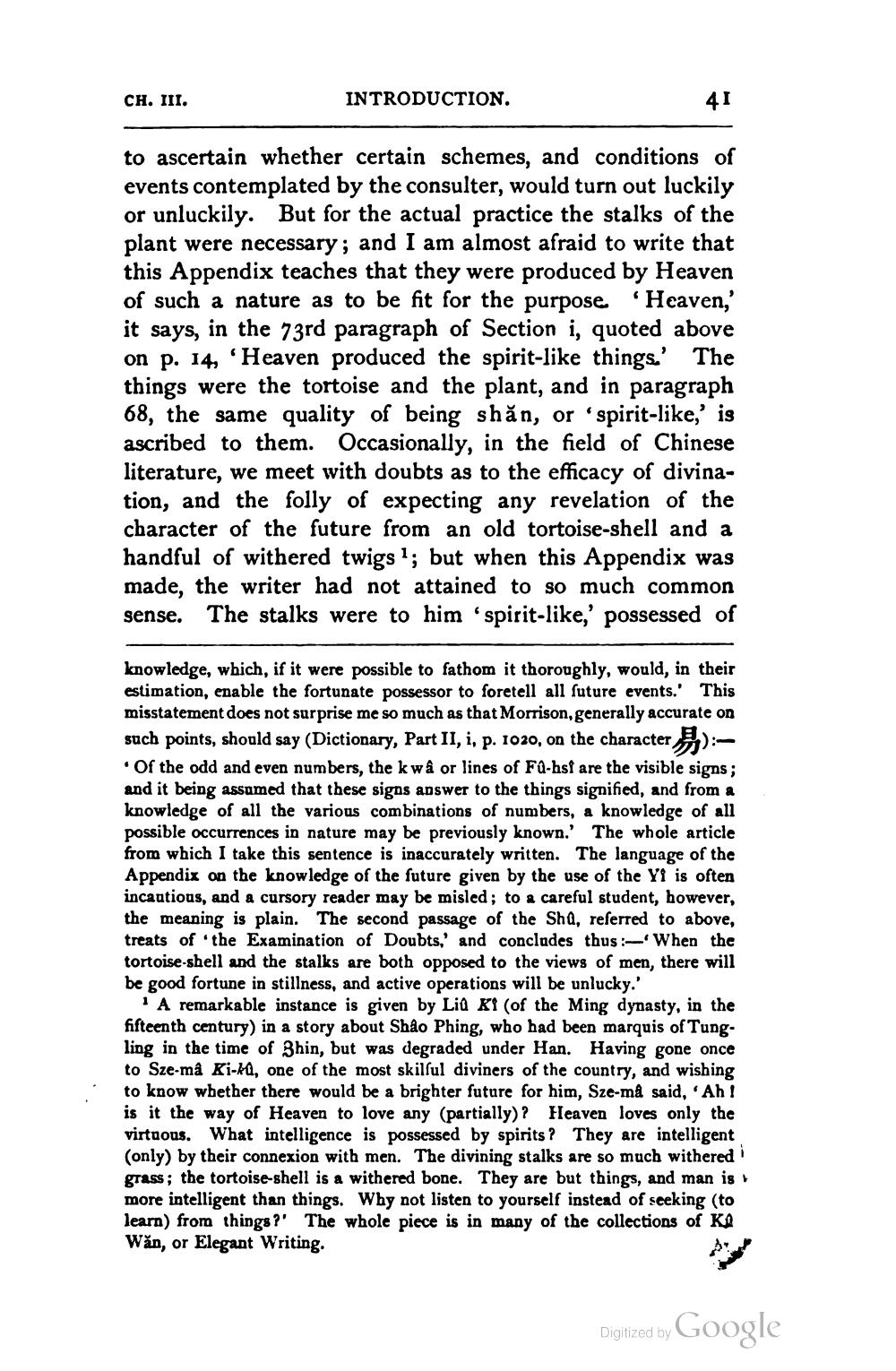________________
CH. III.
INTRODUCTION.
to ascertain whether certain schemes, and conditions of events contemplated by the consulter, would turn out luckily or unluckily. But for the actual practice the stalks of the plant were necessary; and I am almost afraid to write that this Appendix teaches that they were produced by Heaven of such a nature as to be fit for the purpose. 'Heaven,' it says, in the 73rd paragraph of Section i, quoted above on p. 14, 'Heaven produced the spirit-like things.' The things were the tortoise and the plant, and in paragraph 68, the same quality of being shăn, or spirit-like,' is ascribed to them. Occasionally, in the field of Chinese literature, we meet with doubts as to the efficacy of divination, and the folly of expecting any revelation of the character of the future from an old tortoise-shell and a handful of withered twigs '; but when this Appendix was made, the writer had not attained to so much common sense. The stalks were to him 'spirit-like,' possessed of
knowledge, which, if it were possible to fathom it thoroughly, would, in their estimation, enable the fortunate possessor to foretell all future events. This misstatement does not surprise me so much as that Morrison, generally accurate on such points, should say (Dictionary, Part II, i, p. 1020, on the characte
of the odd and even numbers, the kwa or lines of Fa-hst are the visible signs; and it being assumed that these signs answer to the things signified, and from a knowledge of all the various combinations of numbers, a knowledge of all possible occurrences in nature may be previously known.' The whole article from which I take this sentence is inaccurately written. The language of the Appendix on the knowledge of the future given by the use of the Yt is often incautious, and a cursory reader may be misled; to a careful student, however, the meaning is plain. The second passage of the Sha, referred to above, treats of the Examination of Doubts,' and concludes thus:- When the tortoise-shell and the stalks are both opposed to the views of men, there will be good fortune in stillness, and active operations will be unlucky.
A remarkable instance is given by Lill K1 (of the Ming dynasty, in the fifteenth century) in a story about Shao Phing, who had been marquis of Tungling in the time of Shin, but was degraded under Han. Having gone once to Sze-mâ Ki-4d, one of the most skilsul diviners of the country, and wishing to know whether there would be a brighter future for him, Sze-må said, 'Ah! is it the way of Heaven to love any (partially)? Heaven loves only the virtuous. What intelligence is possessed by spirits? They are intelligent (only) by their connexion with men. The divining stalks are so much withered i grass; the tortoise-shell is a withered bone. They are but things, and man is more intelligent than things. Why not listen to yourself instead of seeking (to learn) from things?' The whole piece is in many of the collections of KO Wăn, or Elegant Writing.
Digitized by Google




